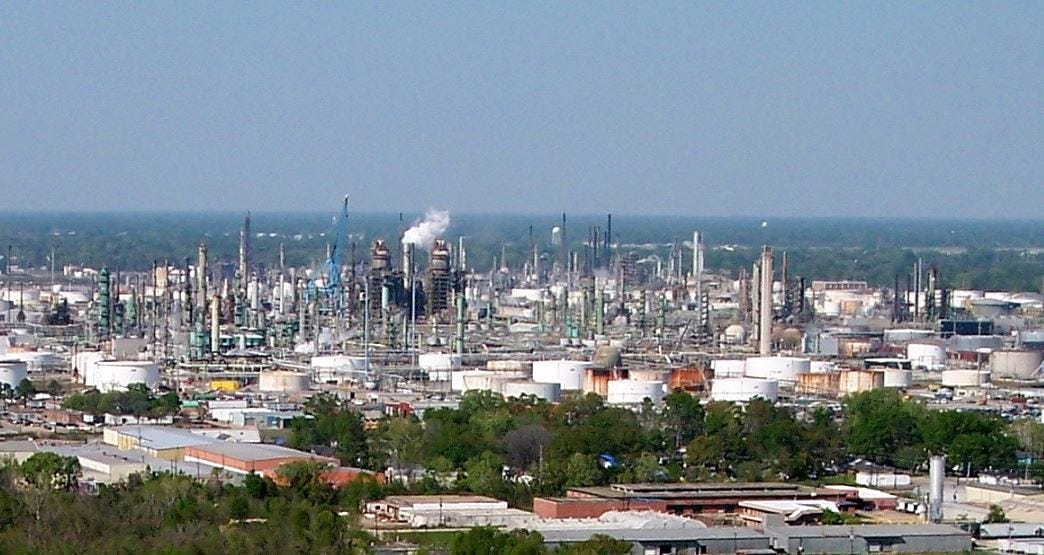No accounting for oil reserves
Mark Hulbert explains why investors should ignore the debate about reserves on Big Oil's balance sheets.

CHAPEL HILL, N.C. (Callaway Climate Insights) — What would happen to ExxonMobil’s (XOM) stock price if pending climate-related lawsuits against the company succeed and they are prevented from reporting their tremendous reserves of oil and gas on their balance sheet?
The best guess: Nothing.
How can that be, you may ask? After all, the company’s current proved reserves amount to the equivalent of 22.4 billion barrels of oil — enough to satisfy nearly two decades at current production levels. Wouldn’t removing those assets be a huge hit to their net worth?
The reason the stock price most likely wouldn’t be affected, according to Lawrence Tint, is that the assets themselves would still exist and would still be able to contribute just as much to future earnings. Tint is chairman of Quantal, a risk-management firm for institutional investors; until 2000, he also was U.S. CEO of Barclays Global Investors (now part of Blackrock), the organization that created iShares, one of the largest families of ETFs.
“Investors care about how much the company can earn,” Tint explained in an interview. “And an accounting change shifting XOM’s reserves from its balance sheet to a footnote will in and of itself have no impact on its earning potential (other than possible tax consequences).”
This isn’t to say that ExxonMobil’s earning potential won’t fluctuate. It most definitely will, as we’ve seen so far this year: Crude oil has plunged and the company’s stock has fallen 34.8%. But the magnitude of this loss helps to make Tint’s point, since it was a lot less than the 60% year-to-date loss for crude oil. That’s in part because investors anticipate that oil’s price won’t stay low forever, and so the company’s earning potential hasn’t fallen as much as the price of oil.
From the perspective of reducing greenhouse emissions, getting ExxonMobil and other oil companies to remove reserves from their balance sheets is an ineffective strategy.
To illustrate, Tint mentioned Berkshire Hathaway (BRK.A BRK.B), and in particular the impact of a 2018 accounting change that required companies to start reflecting unrealized gains and losses when reporting net income. Had that accounting change not been made, the company would have reported a $4 billion profit for the first quarter. Because of the change, however, it reported a nearly $50 billion loss.
Tint’s point is that Berkshire Hathaway’s earnings potential hasn’t changed just because the accountants now require them to start reflecting unrealized gains and losses. Investors see through the accounting changes and focus on the underlying reality. And the same would be true if ExxonMobil no longer could report the value of its oil and gas reserves on its balance sheet.
Warren Buffett, chairman and CEO of Berkshire Hathaway, made the same point in his most recent annual report, by the way. Saying that the new accounting rule leads to “crazy” results, he urged investors to “focus on operating earnings… and to ignore both quarterly and annual gains or losses from investments, whether these are realized or unrealized.”
I bring all this up to make the point that, from the perspective of reducing greenhouse emissions, getting ExxonMobil and other oil companies to remove reserves from their balance sheets is an ineffective strategy.
The only real way of reducing the value of those reserves is to reduce the demand for oil and gas so much that it doesn’t pay for the companies to extract it.
And that will take Herculean effort, as we all know. Meanwhile, ExxonMobil’s business case remains as strong as ever, if not stronger — as it smugly pointed out in its latest annual report, released last week:
“In the next two decades, the global population is expected to grow by 2 billion people…; the middle class will expand to more than 5 billion people; and the world’s demand for energy is projected to grow by about 20 percent… Strong demand for our products forms the basis for ExxonMobil’s long-term strategy to grow energy supply, earnings, cash flow and value for our shareholders.”
We won’t be able to prove this business case wrong by spending our energy on cosmetic changes that have no real-world impact.
(About the author: Mark Hulbert is an author and financial markets columnist. He is the founder of the Hulbert Financial Digest and his Hulbert Ratings tracks investment newsletters that pay a flat fee to be audited. He can be reached at mark@hulbertratings.com.)

